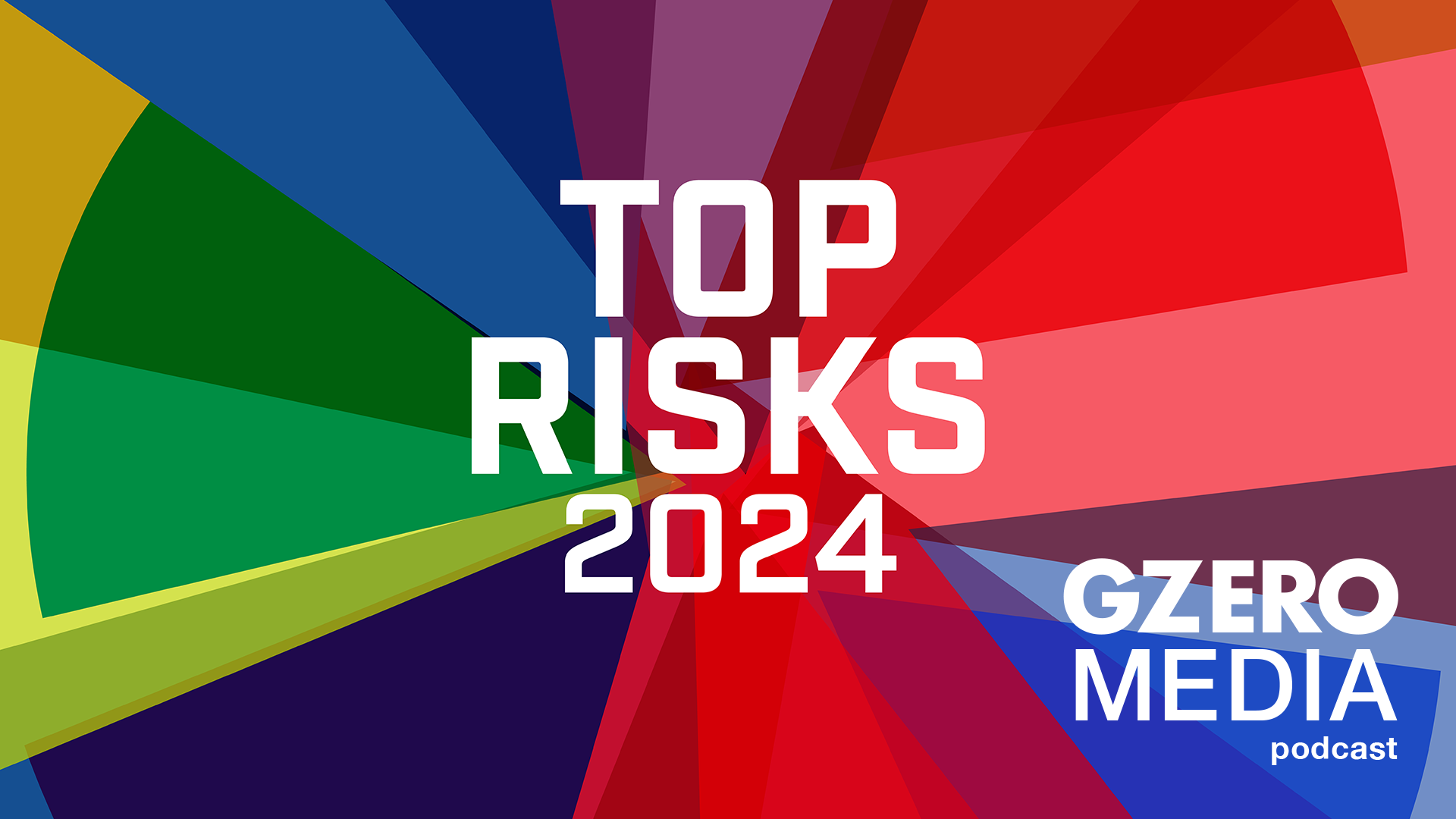January 11, 2024
Listen: In a special edition of the GZERO podcast, we're diving into our expectations for the topsy-turvy year ahead. The war in Ukraine is heading into a stalemate and possible partition. Israel's invasion of Gaza has amplified region-wide tensions that threaten to spill over into an even wider, even more disastrous, even ghastlier conflict. And in the United States, the presidential election threatens to rip apart the feeble tendrils holding together American democracy.
All those trends and more topped Eurasia Group's annual Top Risks project for 2024, which takes the view from 30,000 feet to summarize the most dangerous and looming unknowns in the coming year. Everything from out-of-control AI to China's slow-rolling economy made this year's list.
GZERO Publisher Evan Solomon sat down with Eurasia Group Founder and President Ian Bremmer and Chairman Cliff Kupchan to work through their list of Top Risks for 2024 alongside Susan Glasser, staff writer at The New Yorker and co-author of "The Divider: Trump in the White House, 2017-2021"; Zeid Ra'ad Al Hussein, CEO & President of the International Peace Institute and former United Nations High Commissioner for Human Rights; and Marietje Schaake, International Policy Fellow, Stanford Human-Centered Artificial Intelligence. The big throughline this year? Events spiral out of control even against the wishes of major players. Whether it's possible escalation between Israel and Iranian proxies, Chinese retaliation to the result of the Taiwanese election, or central banks finding themselves squeezed into a corner by persistent inflation, the sheer number of moving parts presents a risk in and of itself.
Take a deep dive with the panel in our full discussion, recorded live on January 8.
Subscribe to the GZERO World Podcast on Apple Podcasts, Spotify, Stitcher, or your preferred podcast platform, to receive new episodes as soon as they're published.
From Your Site Articles
- China flirts with deflation. Why is that a bad thing? ›
- Will China end Russia’s war? ›
- Live on Jan. 8: Ian Bremmer & Eurasia Group discuss 2024's Top ... ›
- Top Risks 2022: We’re done with the pandemic, but the pandemic ain’t done with us ›
- A world of conflict: The top risks of 2024 ›
- Podcast: The Top Geopolitical Risks of 2025, a live conversation with Ian Bremmer and global experts - GZERO Media ›
More For You
Bad Bunny during the Super Bowl LX halftime show press conference at Moscone Center.
Kirby Lee-Imagn Images
100 million: The number of people expected to watch the Super Bowl halftime performance with Bad Bunny, the Puerto Rican superstar and newly minted Album of the Year winner at the Grammys.
Most Popular
Think you know what's going on around the world? Here's your chance to prove it.
- YouTube
An imminent US airstrike on iran is not only possible, it's probable.
Americans are moving less — and renting more. Cooling migration and rising vacancy rates, especially across the Sunbelt, have flattened rent growth and given renters new leverage. For many lower-income households, that relief is beginning to show up in discretionary spending. Explore what's changing in US housing by subscribing to Bank of America Institute.
© 2025 GZERO Media. All Rights Reserved | A Eurasia Group media company.
